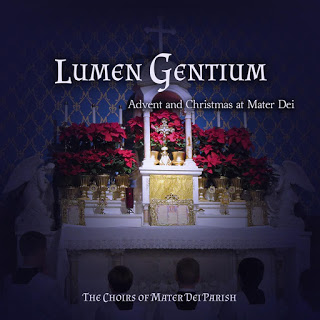Judge not, that you may not be judged. (Matthew 7:1)
With the possible exception of John 3:16, it has to be the most frequently quoted verse of the Bible. Even the pagans love it. It is the answer to every moral argument, a rebuke used to imply, “How dare you tell me I’m sinning! You’re being judgmental!” (And we all know of course that being judgmental is a very bad thing).
Perhaps if we give this verse some context, we might see things a little differently. For starters, according to the comment in the Douay-Rheims Bible for chapter 7 of St. Matthew, this verse begins “The third part of the sermon on the mount.” How convenient it is to skip over the first two parts of the sermon (chapters 5 and 6) to get to this one-line gem! Going back to chapter 5, Christ speaks of the eight beatitudes. Consider the following beatitude:
Blessed are they that hunger and thirst after justice: for they shall have their fill. (Matthew 5:6)
Wait a minute. You’re saying they’re supposed to thirst after justice, but they can’t judge? How dare they thirst after justice! That’s being judgmental, according to the way people use Matthew 7:1. They’re not supposed to want justice. They all just need to get along.
Lets look at some additional context. In Matthew 5:13-16, the Lord tells us (in the same sermon) to be “the salt of the earth” and “the light of the world”. He goes so far as to admonish that we “not lose our savour” as follows:
You are the salt of the earth. But if the salt lose its savour, wherewith shall it be salted? It is good for nothing but to be case out, and to be trodden among men. You are the light of the world. A city seated on a hill cannot be hid. Neither do men light a candle and put it under a bushel, but upon a candlestick, that it may shine to all that are in the house. So let your light shine before men, that they may see your good works, and glorify your Father who is in heaven. (Matthew 5:13-16)
Those who tell us not to call a sin for what it is claim we are being judgmental when we do so; then they cite Matthew 7:1. Are they not rather saying they want us to lose our savor and hide our light, for the light exposes their darkness?
It get’s better. From verse 17 through verse 48 (the end of chapter 5), Jesus makes it clear He is not abolishing the moral law, and He goes on to explain that the commandments are more broad than what had been “heard of old”. For example:
You have heard that it was said of old: Thou shalt not kill. And whosoever shall kill shall be in danger of the judgment. But I say to you, that whosoever is angry with his brother, shall be in danger of the judgment. And whosoever shall say to his brother, Raca, shall be in danger of the council. And whosoever shall say, Thou fool, shall be in danger of hell fire. (Matthew 5:21-22).
And again:
You have heard that it was said to them of old: Thou shalt not commit adultery. But I say to you, that whosoever shall look on a woman to lust after her, hath already committed adultery with her in his heart. (Matthew 5:27-28).
How often it is that the people who tell us not to judge are the ones who have a problem with these two particular commandments. But I digress. The point is, there is a moral law, and we have moral obligations. We must judge between what is right and what is wrong.
Chapter 6, the second part of the sermon, is about motivation. Doing good for the wrong reasons (e.g. to be seen by men) is not good. We’ll come back to that later with respect to judging others. Here also, is the Lord’s Prayer, the exhortation to put the Kingdom of God first (“No man can serve two masters.”), and the admonishment not to worry after worldly things (“Be not therefore solicitous for tomorrow…”)
With all of that context behind, we now come to Matthew 7. Lets take the first five verses together, instead of just the first verse:
Judge not, that you may not be judged. For with what judgment you judge, you shall be judged: and with what measure you mete, it shall be measured to you again. And why seest thou the mote that is in thy brother’s eye; and seest not the beam that is in thy own eye? Or how sayest thou to thy brother: Let me cast the mote out of thy eye; and behold a beam is in thy own eye? Thou hypocrite, cast out first the beam out of thy own eye, and then shalt thou see to cast out the mote out of thy brother’s eye. (Matthew 7:1-5).
Note in particular the use of the words “first” and “then” in verse 5. Christ did not say to cast out only the beam of our own eye with no regard for the mote in our brother’s eye. Lest we forget, to admonish the sinner is one of the spiritual works of mercy. It is a charitable and merciful object (not intrinsically evil), provided we do it in the right way, with the right motivation, and the circumstances are good.
How should we admonish the sinner? First, consider motivation. Are we concerned about our brother’s salvation, or are we angry and desirous of revenge, or have we some other motive? If our motivation is not our brother’s spiritual wellbeing, we need to work on the beam in our own eye. If we have the right motivation, we should consider our own sins. How often have we fallen, even perhaps into greater sins? If we’re not living as we ought, we need to work on the beam in our own eye, for how effective is the example of a hypocrite? Finally, we should consider the circumstances. By admonishing someone in a particular way, would we be making private sins public? I think there is a particular danger in this respect with blogs and social media. We should admonish in such circumstances as we can be sure not to damage our brother’s reputation.
The fact remains that there are public sinners, such as those politicians who, claiming to be Catholic, vote (over and over again) for contraception, abortion, and against marriage. We cannot simple be silent as if these things do not matter. We have to love even the greatest sinners, but if we accept their sins in the name of not being judgmental, do we really love these sinners as ourselves? Would we not want to be admonished to repent and save our souls if we were in their shoes?
Loving the sinner and hating the sin is not contrary to Matthew 7:1. It is rather necessitated by the sermon on the mount, of which Matthew 7:1 is a part. I would encourage readers to read the sermon on the mount in its entirety.



